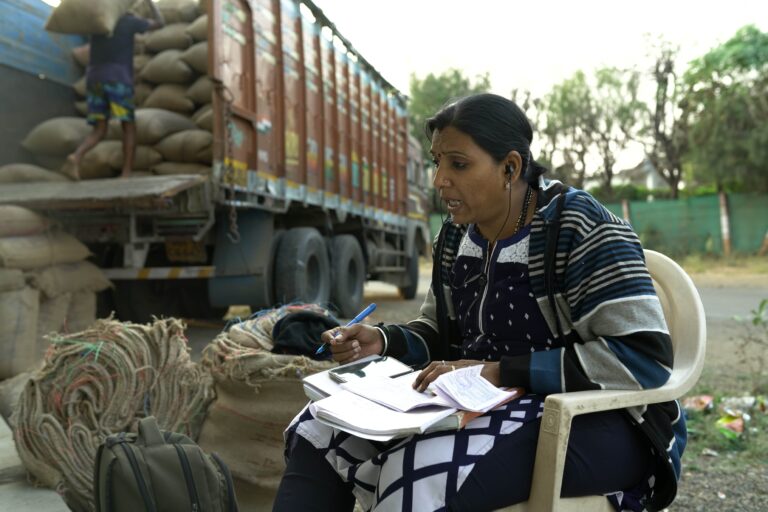To address the issues of last mile connect and the opportunity for more extensive extension in post harvest interventions, Arya and Vriddhi came together in 2019. The purpose was “Increasing procurement of produce through timely and appropriate information on price, procedure and benefits to farmers” This project was implemented with our partner Arya Collateral Warehousing Services (www.aryacma.co.in).
Arya in partnership with UNDP and Maharashtra State Rural Livelihood Mission (UMED), had started a post harvest intervention at agri procurement that supported farmers realization of maximum value for their commodities and to avoid distress sale in 2018. The focus was on building capacity of women collectives in two districts to undertake post harvest interventions. With the success of this program, it was scaled up in 2019 to cover six districts.
Focus was on building conviction of farmers based on good experiences of the previous year. Messaging was needed on advantages of participating in the program. We also expected to have a wide spread dissemination of daily rate during the season, reaching knowledge to the farmer in a way that they can decide to sell. A message matrix was developed addressing this need. The core components identified which should convince the farmer were: 1) No loss due to labour and commission; 2) Convenience; 3) Transparency, because quality testing based price; 4) Immediate payment. Arya team collected testimonials from the field through videos of leaders of participating FPOs, past participants and Krishi Sakhis – the extension workers. Eight such videos were shared via SMS, based on an assumption that many farmers have smartphones. In phase 1, these videos were developed and shared widely across about 8,000 farmer numbers that were available with us.
Effectiveness of ICT can be realized based on constant seeking of evidence of utilization by end user. A small internal study done by the Arya consulting team led to the conclusion that assumption about the smartphone usage was not valid. Listening data showed that for the voice messages sent 75% of the people answering these messages were listening to 80% of the duration of the message. The survey showed 20% recall for the messages on key points in the messages. It also identified the need for having a mechanism to share daily rate with the farmers, to support their decision making. Accordingly in phase 2 of this project, a smaller group in each district was identified, who received daily price messages. A dedicated phone number was set up on which farmers could call and enquire about rates or any questions they may have.
Messages became more targeted.
17 messages were sent between November 11 and December 2. An interim study was done when 12 messages had been sent. This showed that farmers had received the message 8-9 times. It was found that, overall, a minimum of 63% of the content was heard and a maximum of 81% of the content was heard by the target farmers. A reducing trend over subsequent messages showed tiredness with the same format, or reduced relevance to them. Also, 24% farmers called on the dedicated phone line between 2-11 times for selling their produce. In some centre between 28-35% farmers who contacted the centre had heard about the work via phone messages and calls.
The project closed with procurement of over 2000 MT, with 1729 farmers selling their produce. It generated more than 32 lakhs in profit for the participating FPOs.

Insights generated from this use instance are that if relevant content is landed at the right time, it does support decision making of farmers and is reflected in their action. Thus, relevance of content and messaging and Timeliness are the key factors that determine effectiveness of digital outreach. It is possible to develop content at low cost – using field teams and leveraging positive experience of farmers. However basic equipment in the form of a recording microphone is essential. Collection of phone numbers of potential program participants is a time consuming exercise.
There is potential to provide such outreach services for the extension agents themselves, for amplifying their messaging to their own community.
